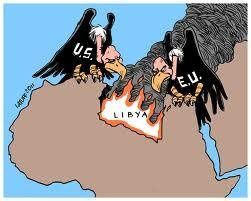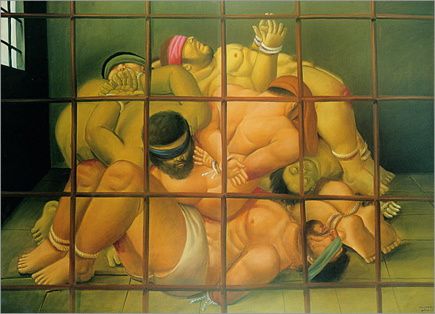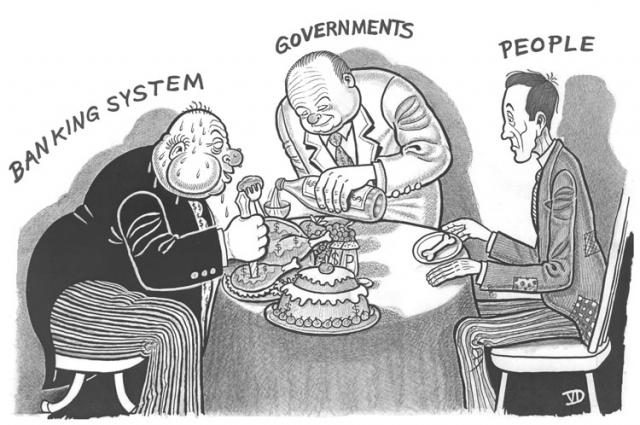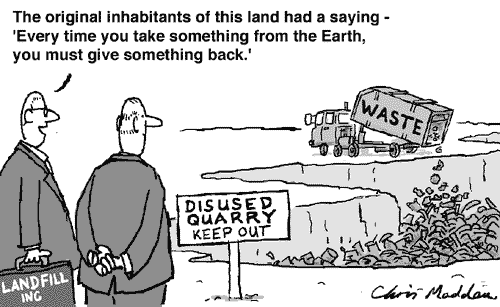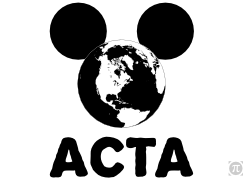Countercurrents.org 30 May, 2008
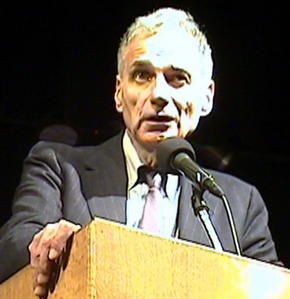
What's Really Driving
The High Price Of Oil?
By Ralph Nader
What factors are causing the zooming price of crude oil, gasoline and heating products? What is going to be done about it?
Photo: Joëlle Pénochet Columbia Sept. 2004
Don’t rely on the White House—with Bush and Cheney marinated in oil—or the Congress—which has hearings that grill oil executives who know that nothing is going to happen on Capitol Hill either.
Last week the price of crude oil reached about $130 a barrel after spiking to $140 briefly. The immediate cause? Guesses by oil man T. Boone Pickens and Goldman Sachs that the price could go to $150 and $200 a barrel respectivly in the near future. They were referring to what can be called the hoopla pricing party on the New York Mercantile Exchange. (NYMEX)
Meanwhile, consumers, workers and small businesses are suffering with the price of gasoline at $4 a gallon and diesel at $4.50 a gallon. Suffering but not protesting, except for a few demonstrations by independent truckers.
A consumer and small business revolt could be politically powerful. But what would they revolt to achieve? Their government is paralyzed and is unable to indicate any action if oil goes up to $200 or $400 a barrel. Washington, D.C. is leaving people defenseless and drawing no marker for when it will take action.
Oil was at $50 a barrel in January 2007, then $75 a barrel in August 2007. Now at $130 or so a barrel, it is clear that oil pricing is speculative activity, having very little to do with physical supply and demand. An essential product—petroleum—is set by speculators operating on rumor, greed, and fear of wild predictions.
Over the time since early 2007, U.S. demand for petroleum has fallen by 1 percent and world demand has risen by 1.3 percent. Supplies of crude are so plentiful, according to the Wall Street Journal, “traders of physical crude oil say their market is suffering from too much supply, not too little.”
Iran, for instance, is storing 25 million barrels of heavy, sour crude oil because, in the words of Hossein Kazempour Ardebili, Iran’s oil governor, “there are simply no buyers because the market has more than enough oil.”
Mike Wittner, head of oil research at Societe Generale in London agrees. “There’s various signals out there saying for right now, the markets are well supplied with crude.”
Historically, oil has been afflicted with the control of monopolists. From the late nineteenth century days of John D. Rockefeller, and his Standard Oil monopoly, to the emergence of the “Seven Sisters” oligopoly, made up of Standard Oil, Shell, BP, Texaco, Mobil, Gulf and Socal, to the rise of OPEC representing the major producing countries, the “free market” price of oil has been a mirage. Despite the breakup of the Standard Oil company by the government’s trustbusters about 100 years ago, selling cartels and buying oligopolies kept reasserting themselves.
In an ironic twist, the major price determinant has moved from OPEC (having only 40% of the world production) and the oil companies to the speculators in the commodities markets. What goes on in the essentially unregulated New York Mercantile Exchange (NYMEX)—without Commodity Futures Trading Commission (CFTC) enforced margin requirements, and, unlike your personal purchases, untaxed—is now the place that leads to your skyrocketing gasoline bills. OPEC and the Big Oil companies reap the benefits and say that it’s not their doing, but that of the speculators. Gives new meaning to “passing the buck.”
Deborah Fineman, president of Mitchell Supreme Fuel Co. in Orange, New Jersey, summed up the scene: “Energy markets have been dictated for too long by hedge funds and speculators, who artificially manipulate the numbers for their own benefit. The current market isn’t based on the sound principles of supply and demand but it is being rigged by companies and speculators who are jacking up prices for their own greed.”
Harry C. Johnson, former banker who worked for many years inside Big Oil and ran his own small oil company in Oklahoma, blames the CFTC, the Department of Energy, the Administration, and Congress, as “asleep at the switch on an issue that is probably costing U.S. consumers $1 billion per day.”
He cites “some industry experts, who profit greatly from the high price of crude, and have stated openly that the worldwide economic price of crude, absent speculators, would be around $50 to $60 per barrel.
Imagine, our government is letting your price for gasoline and home heating oil be determined by a gambling casino on Wall Street called NYMEX. The people need regulatory protection from speculators and an excess profits tax on Big Oil.
In addition, a sane government would see the present price crises as an opportunity to expand our passenger and freight railroad capacity and technology.
A sane government would drop all subsidies and tax loopholes for Big Oil’s huge profits and other fossil fuels and promote a national mission to solarize our economy to achieve major savings from energy conservation technology, retrofitting buildings, and upgrading efficiency standards for motor vehicles, home appliances, industrial engines and electric generating plants.
Those are the permanent ways to achieve energy independence, reduce our trade deficit, create good jobs that can’t be exported and protect the environmental health of people and nature.
Those are the reforms and advances that a muscular consumer, worker and small business revolt can focus on in the coming weeks.
What say you, America?
Ralph Nader is running for president as an independent.
http://www.countercurrents.org/nader300508.htm
Articles/video on Energy issue:
Energie/Energy
Nucléaire Civil/Nuclear Energy
Energies propres/Clean Energy
Agrocarburants/Agrofuel
Articles/video - Ralph Nader:
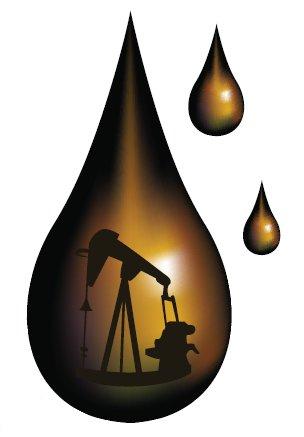







![Géopolitique : Union transatlantique, la grande menace, par Alain De Benoist [tribune libre] Géopolitique : Union transatlantique, la grande menace, par Alain De Benoist [tribune libre]](http://www.breizh-info.com/wp-content/uploads/2014/06/tafta.jpg)





